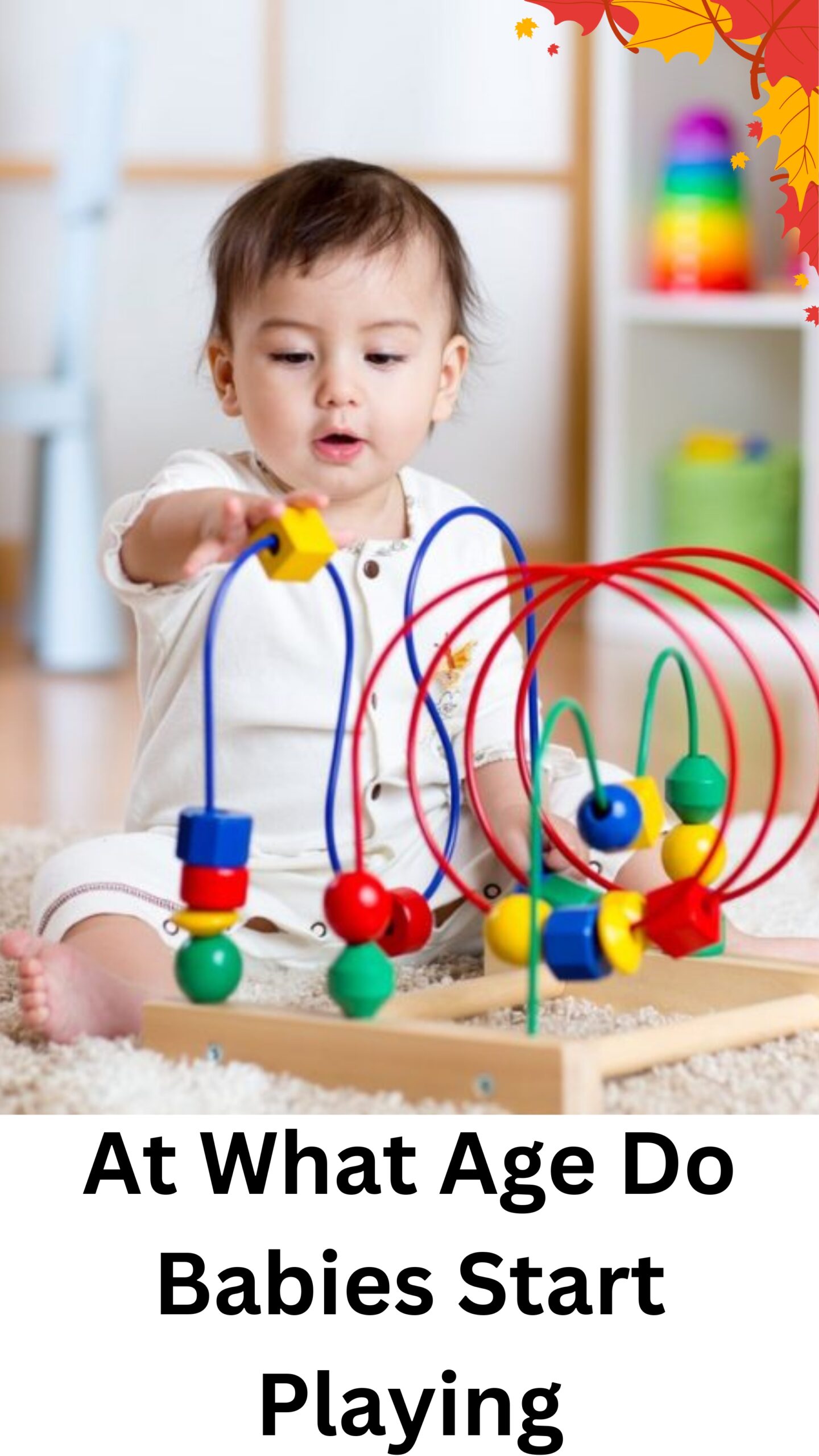Discover the fascinating journey of child development as we explore the question: At What Age Do Babies Start Playing? This comprehensive article covers key milestones, expert insights, and FAQs, providing valuable information for parents and caregivers.
Embarking on the captivating voyage of understanding when babies begin to play is a crucial aspect of parenting. In this article, we delve into the intricate details surrounding the age at which babies start playing, offering insights that blend expertise and relatability.
The Developmental Dance
The Role of Motor Skills

The journey of play commences with the development of motor skills. Babies, around the age of three to four months, begin to explore their surroundings with newfound coordination. Activities like reaching for objects and rolling over mark the initial forays into the world of play.
Cognitive Milestones

As babies grow, so does their cognitive capacity. Around six to eight months, you’ll notice the emergence of more sophisticated play patterns. Peek-a-boo becomes a delightful game as object permanence develops, showcasing the deep connection between cognitive milestones and play.
Social Interaction and Play

Babies are inherently social beings. By the age of nine to twelve months, they start engaging in social play, whether it’s imitating gestures or enjoying simple games with caregivers. This social interaction becomes a crucial aspect of their playtime.
Nurturing Playfulness
Creating a Stimulating Environment

The environment plays a vital role in shaping a baby’s play habits. Providing a safe and stimulating space encourages exploration. Simple additions like colorful toys, soft play mats, and interactive objects create an engaging atmosphere.
Choosing Age-Appropriate Toys

Selecting toys aligned with a baby’s developmental stage is paramount. Soft, textured toys for teething infants, and more complex toys with colors and sounds for older babies, ensure that playtime remains both enjoyable and educational.
Parental Engagement

Parental involvement is a cornerstone of fostering a love for play. Spending quality time interacting with your baby, whether through games, storytelling, or simply being present, strengthens the parent-child bond and enhances the play experience.
Final Words
As we unravel the question “At What Age Do Babies Start Playing,” it becomes evident that play is a multifaceted aspect of early development. Each child follows a unique timeline, and parental guidance plays a pivotal role in nurturing a love for play. Embrace the diversity of your child’s journey, celebrate small milestones, and savor the joyous moments of discovery.
FAQs
What types of activities constitute play for a newborn?
Newborn play involves sensory experiences. Activities like gentle touch, soft sounds, and visual stimulation through contrasting colors are forms of play that cater to their early developmental needs.
Can premature babies start playing later than full-term babies?
Premature babies may have a delayed start in some developmental milestones, including play. However, with attentive care and adjusted expectations, they catch up at their own pace.
How does screen time affect a baby’s play development?
Excessive screen time can hinder a baby’s natural inclination to explore the physical world. Limiting screen exposure and encouraging hands-on activities contribute to healthy play development.
Should parents be concerned if their baby doesn’t show interest in playing?
Every baby is unique, and developmental timelines vary. If a baby seems less interested in play, observe for any underlying issues, but also allow space for individual differences.
Is there an ideal age to introduce educational toys?
Introducing educational toys can begin around six months when babies start grasping objects. These toys stimulate cognitive development and are designed to be both entertaining and instructive.
What role do siblings play in a baby’s playtime?
Siblings can significantly impact a baby’s playtime. Older siblings often become playmates and mentors, fostering social skills and creating a dynamic play environment.
